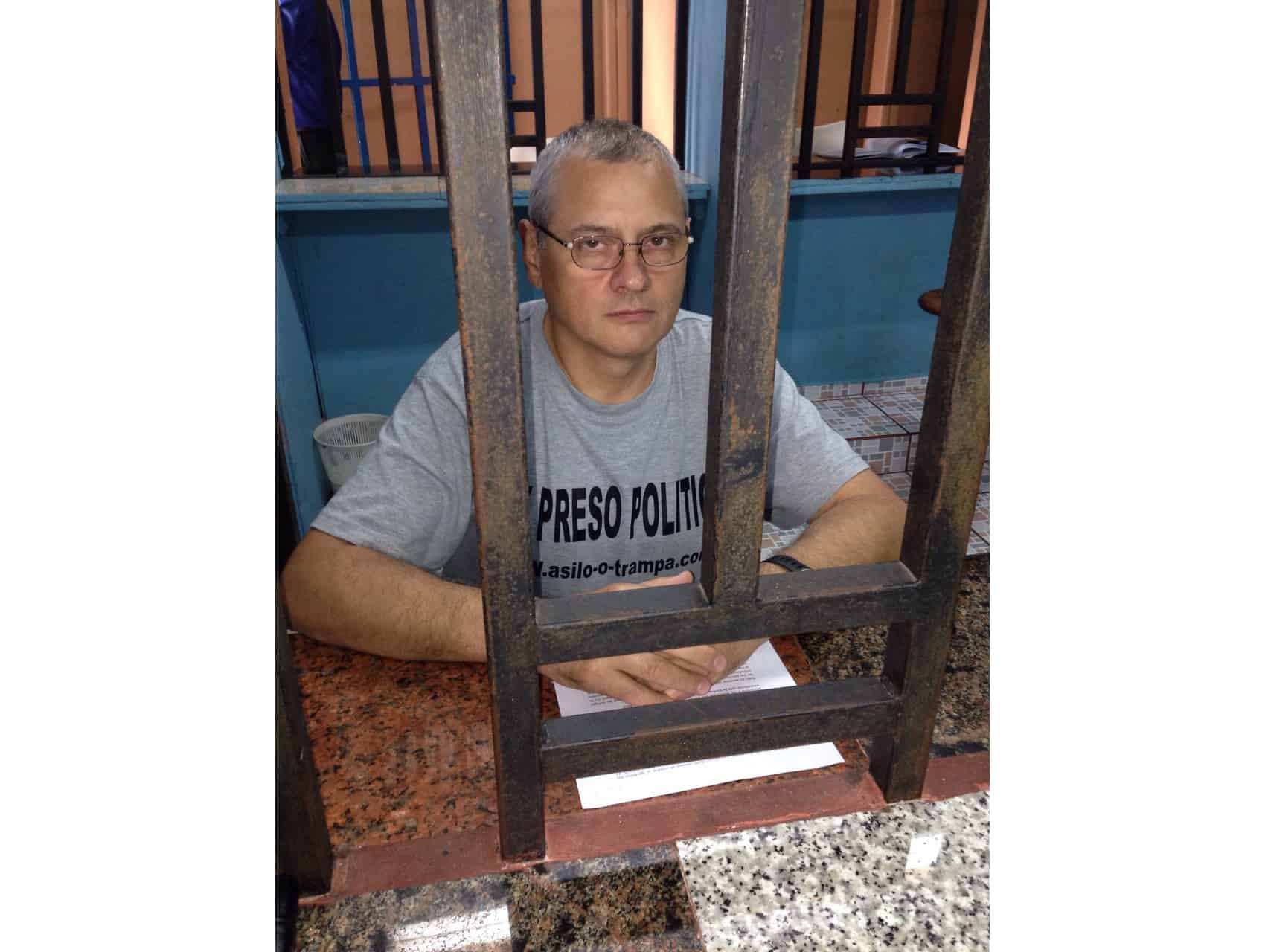After being held for three years in preventive detention without charges, Russian asylum-seeker Evgeny Konstantinovich Otto went on a hunger strike Oct. 16 to draw attention to his case. His plight has caught the attention of several human rights organizations in Costa Rica that held a joint press conference on Wednesday demanding Otto’s immediate release and the granting to him of refugee status in Costa Rica.
At this writing, Otto has been on a hunger strike for six days, consuming only water and refusing medical attention. Steven Ramírez, a press representative for the Justice Ministry, which oversees Costa Rican prisons, confirmed the hunger strike and told The Tico Times that Otto remains in good health.
Otto, a former majority shareholder of a linen factory, is accused of committing fraud in his native Russia between 1999 and 2002. Otto traveled to Costa Rica legally in 2005 on a tourist visa and applied for refugee status in early 2006. Between 2006 and 2009, Otto presented two solicitations for refugee status in Costa Rica, but both were denied.
In 2010, the Russian Embassy in San José presented a request to Costa Rican authorities to extradite Otto back to Russia to face charges. The Criminal Court of Pavas ordered Otto detained as a flight risk and, on Nov. 11, 2011, Judicial Investigation Police detained the businessman. He has remained behind bars in San Sebastián prison in southern San José for nearly three years without charges brought against him. Otto’s supporters claim that the Russian Embassy in San José has yet to present documents clearly describing the charges he would face.
The Tico Times was unable to reach a representative of the Russian Embassy for comment as of this posting.
“He started his hunger strike as an act of desperation because he’s lost hope for justice,” said Tatiana Otto, the detainee’s sister, who has lived in Costa Rica for 23 years. Tatiana Otto told The Tico Times her brother’s extradition to Russia would be akin to a “death sentence.”
“This isn’t a life. He was persecuted in Russia and he’s persecuted here,” she said.
Ronaldo Nassar, director of the Foundation for Human and Constitutional Rights, said that Otto’s indefinite detention was troubling for Costa Rica’s democracy. The lawyer said that the detention while Otto continues to appeal for refugee status was illegal, and he accused the government of violating the Inter-American Human Rights Convention, to which Costa Rica is a signatory, which states that detentions must have a stated end date.
Nassar said the punishment for the fraud charge Otto would face in Russia was three years, “exactly the amount of time he has served in a Costa Rican prison.” He added that Otto could face additional prison time or forced labor if he were returned to Russia. Nassar said the foundation would present a petition to the Inter-American Commission on Human Rights with a request for the Inter-American Court to take up the case.
Marco Badilla, Otto’s attorney, said his client is not facing grave conditions in the prison, but he noted that Otto was attacked by another prisoner in 2012 and suffered injuries to his face.
Ramírez said the Justice Ministry respects – but does not condone – Otto’s decision to wage a hunger strike. The ministry does not have the authority to force-feed Otto, according to Ramirez.
Badilla said he advised his client not to hold the hunger strike pending an upcoming hearing on Nov. 21 to review his treatment and the handling of his case by former Public Security Minister Mario Zamora.
Added Badilla: “Evgeny says that he’s innocent and he’s not going to waver from his position. I believe him, as a lawyer, and he’s perfectly qualified to be accepted as a refugee.”






